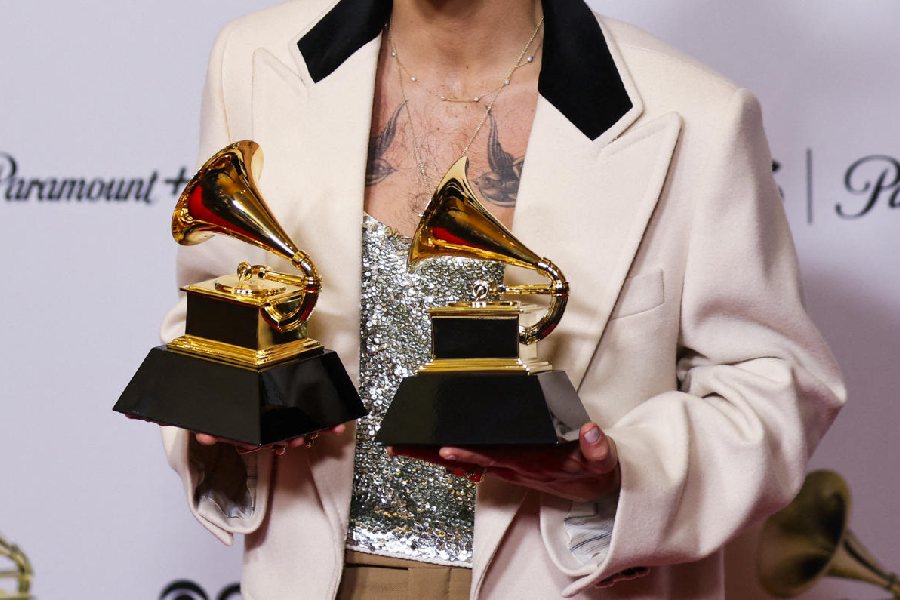“Only human creators are eligible” for the Grammy Awards, the Recording Academy declared on Friday, as the body that grants the world’s most recognised music awards seeks to curb the use of artificial intelligence (AI) in the industry.
AI-only work is banned, but some music created with AI help may qualify in certain categories, the academy’s updated rulebook reads. “A work that contains no human authorship is not eligible in any categories.”
Music creators must now contribute to at least 20 per cent of an album to earn a nomination. In the past, any producer, songwriter, engineer or featured artist on an album could earn a nomination for album of the year, even if the person had a small input.
The first Grammy Awards ceremony took place in 1959, to reward music creators from 1958.
In November 2022 OpenAI launched ChatGPT, a free chatbot backed by Microsoft Corp that can generate human-like dialogue based on simple inputs. AI apps have mushroomed, allowing users to animate still photos, create avatars in films and write songs, essays and articles.
People in many professions are growing fearful that AI could displace humans. For example, the Writers Guild of America (WGA) and the Screen Actors Guild (SAG-AFTRA) are wrestling with the use of AI in the creative fields of screenwriting and acting.
The WGA wants to curb the of AI in screenwriting while SAG actors want to ensure its members can control the use of their digital personas and receive proper compensation.
WGA writers went on strike in early May and have yet to agree with studios on the use of AI, among other issues.
Actors could go on strike as well if SAG-AFTRA cannot reach a deal over similar concerns.
New categories
Two years ago, the Grammys abruptly increased the number of nominees permitted in its top categories, going to 10 slots on the ballot, from eight. Now, it is going back.
The Recording Academy, the organisation behind the Grammys, said on Friday that the number of nominees would once again be set at eight in the four top categories — album, record and song of the year, and best new artist — for the 66th annual awards, scheduled to be presented in early 2024.
Among other tweaks to the awards rules is the addition of two categories to the all-genre “general” field: producer of the year, non-classical, and songwriter of the year, non-classical, a new prize introduced at the most recent ceremony, in February. This change — the first addition to the general field since 1959 — would allow all the academy’s voting members to cast votes in those categories. The move to 10 nominees, decided by the board just one day before nominations were announced in 2021, made the always-surprising Grammy process even more unpredictable. Some voters complained privately that broadening the field lowered the mandate for winners too far, allowing — theoretically, at least — one artist to prevail with little more than 10 per cent of the vote.
Harvey Mason Jr., the chief executive of the academy, said in an interview this week that the organisation had not heard any such complaints, but he acknowledged that similar questions were on the minds of board members when they voted last month to change the rules.
“Does the vote get split?Is 10 too many? Does it minimise the nomination?” Mason said.
“All these conversations were happening in trying to find what is the best number.”
At the Grammy ceremony in February, Harry Styles won Album of the Year for Harry’s House, beating out releases by Beyoncé, Adele, Kendrick Lamar and Bad Bunny.










